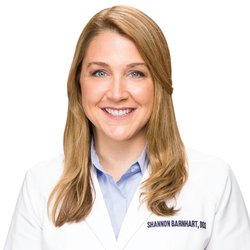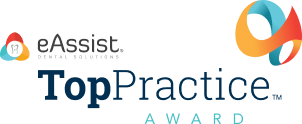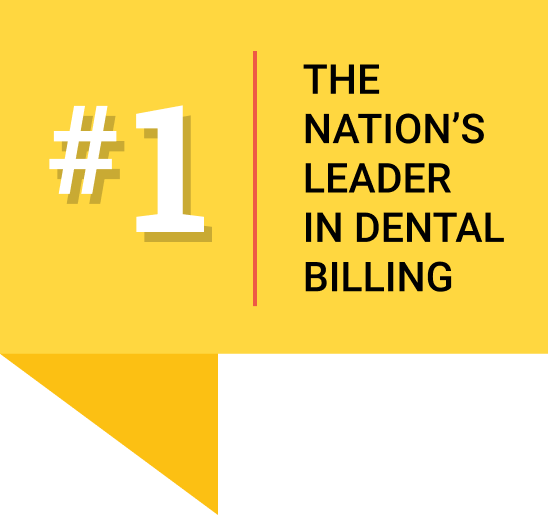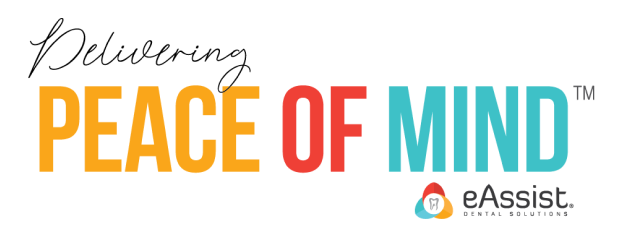Outsourcing Helps Dr. Shannon Barnhart of Fresno Oral Maxillofacial Surgery Work Smarter
“Working smarter, not harder” is something of a mantra for Dr. Shannon Barnhart of Fresno Oral Maxillofacial Surgery & Dental Implant Center. That philosophy has helped her accomplish all that she has.
Interested in the dental profession at an early age, she gravitated toward oral surgery while in dental school. She completed two residencies – one in advanced general dentistry, and a second in oral maxillofacial surgery – the latter while serving in the Air Force. She turned down a promotion to Lieutenant Colonel to join her husband and stepchildren in Fresno, CA.
In addition to the rigorous process required to become board-certified in oral and maxillofacial surgery, she is also certified to provide Stemodontics® -- a complex process to harvest and store a patient’s own stem cells following wisdom tooth extraction.
Apparently another mantra of hers is “Work hard, play hard.” On her days off, she has a passion for outdoor athletic activities such as running, rock climbing, hiking, scuba diving, skiing and snowshoeing.
There’s Growing, And Then There’s G-R-O-W-I-N-G!
Dr. Barnhart knew she had found the perfect fit in Fresno Oral Surgery when she joined the group in 2013. It was obvious to her that everyone is committed to providing compassionate, individualized care that gives the best result, and she’s proud to say, “The staff is all united as one big team to deliver the best patient experience possible.”
She came on board as the fourth doctor serving two locations in central California. The practice continued to grow rapidly, in large part due to the throngs of referring dentists who so highly respect the caliber of their doctors AND their staff. To quote just a few: “There is seamless communication between the patient and both staffs,” and “The staff there is really outstanding; the communication we have between our offices is so great for the patient.” As importantly, the patients themselves can’t say enough about the doctors AND the staff all over social media.
Over the next few years, the practice added a fifth doctor and two more locations. Dr. Barnhart and her partners knew if they didn’t keep up with the growth, their patients would suffer, as would their relationships with referring providers. As a specialty practice, maintaining timely communication with referring doctors and their staffs is essential to delivering an outstanding patient experience that spans more than one practice.
A Crossroads
Whether you’re a single-dentist / one-office practice, or a group practice with multiple providers and locations, if you’re enjoying rapid growth you need to make sure your human capital, space, and business systems keep up.
In terms of their billing and collections processes, the practice had been managing to successfully handle it all in-house with one full-time dental insurance biller, and two full-time medical insurance billers (as is typical of a surgical dental practice). But with all that growth, by 2017 Dr. Barnhart said of that one dental biller – “She became completely taxed in the process. It became more than a one-person job.”
This was of particular concern to Dr. Barnhart because of how important it is to her that patients know their concerns, questions and desired outcomes are being heard in the process – and not just by her, but by the staff. When team members are tied up on the phone on-hold or arguing with insurance companies, they’re not listening to the patients and addressing those concerns and questions.
She and her partners found themselves at a crossroads. They needed to decide whether to hire a second in-house dental insurance biller, or consider outsourcing a large part of the function.
Meet Dr. Shannon Barnhart
Choosing a Direction
One of their referring providers recommended eAssist Dental Solutions. Dr. Barnhart felt, “You certainly can’t beat word-of-mouth!” She was impressed with the timeliness of the proposal, and especially the terms of the contract.
We chose eAssist for a lot of reasons and are really happy with that decision. The relationship we have with them is an excellent one.
eAssist was brought on board just over two years ago to handle a majority of the dental insurance billing for all four of their offices. They still have their two medical insurance billers in place, as well as the one in-house dental biller who is the direct liaison for eAssist. Dr. Barnhart describes them as having “a great working relationship. They have several phone meetings a week to get on the same page with everything. The eAssisters are very in touch with communication; they’ll give you reports and interact with your staff as much as needed.”
The in-house dental biller still serves a vital role in the billing process, but has been freed up to spend more time with the patients face-to-face, addressing questions or concerns they may have before or after a procedure, or discussing insurance benefits with the patient (vs. being stuck on the phone with the insurance company). They also have more time to handle a lot of the other communication in a timely manner, such as answering phones, returning calls, and coordinating with referring offices.
Dr. Barnhart knows this level of caring face-to-face communication “is essential for our patient interaction and experience. Having eAssist on board has enhanced that quite a bit.” She cites these key benefits:
- Timeliness of claim submissions
- Reduction in total number of outstanding claims, especially those greater than 60 days
- Reduction in Accounts Receivable balances
- Freeing up of in-house staff for more face-to-face communication with patients, coordinating with referring offices, answering phone calls, and working on projects
- Constant coverage of the function; no down time due to illness or vacation
- Subject matter expertise
- Time and effort saved recruiting, hiring, training new employees
Working Smarter, Not Harder
Dr. Barnhart accepts that dental insurance is a reality for many, if not most patients. So a practice’s ability to handle that part of the business impacts the overall patient experience -- either positively or negatively.
When discussing with colleagues who may be struggling with insurance issues, Dr. Barnhart said, “I recommend they work smarter, not harder; that they look at their challenges and consider other options they might not have considered before, such as the benefits of outsourcing at least some of their billing function to a company like eAssist.”
She reiterated that at her practice, the patient experience is of paramount importance, as she knows it is for most doctors. That’s why she advises, “Doing something that allows the staff to focus on serving the needs of the patients with more face-time and interaction is right in line with that mission.”
For Dr. Barnhart and her partners, the decision to bring eAssist on board also made sense financially. They have an eAssist team of four billers handling their four offices. She appreciates that, “Four people means there’s flexibility. If someone is out sick or on vacation, we don’t have to worry about whether or not our claims are going to get submitted. That’s dealt with on their end, which alleviates the concern when internal staff is handling the billing.”
If someone is out sick or on vacation, we don’t have to worry about whether or not our claims are going to get submitted.
She says they’re lucky to have minimum attrition at their practice, but had they decided to hire a second in-house dental biller, they would have had to go through the time-consuming and sometimes lengthy process of recruiting, hiring, and training a new team member. She values that “With eAssist, there’s that immediate subject matter expertise; you don’t have to worry about training a new person and bringing them up to speed whenever there’s attrition in the office.”
Gaining Control Through Knowledge
Dr. Barnhart is aware that some of her colleagues believe outsourcing billing, or any other practice function for that matter, will negatively impact the patient experience because they think there will then be fewer staff to interact with patients. And/or that they will be giving up control, of particular concern when it’s such a key financial function as billing and collections.
She emphasizes, “When you choose to see outsourcing in a different way, you’ll see the benefits; it actually benefits your patients if you allow the staff doing that work now to, instead, focus more on patient care and interaction.”
From a control standpoint, she says she and her partners now have MORE control because “We’re getting analytics now that we weren’t generating internally to the same degree that they are able to provide to us. So it gives you even better monitoring and control and understanding of the insurance aspect, which is a big deal. It basically allows you to see why your decision was good on a very continual basis.”
You don’t actually lose control; in some aspects you GAIN control because you gain more knowledge, and can gain control over it.
As the saying goes, knowledge is power. So having better analytics and data helps a leadership team make better decisions that benefit the patients, the staff and the business. And that’s definitely working smarter!







